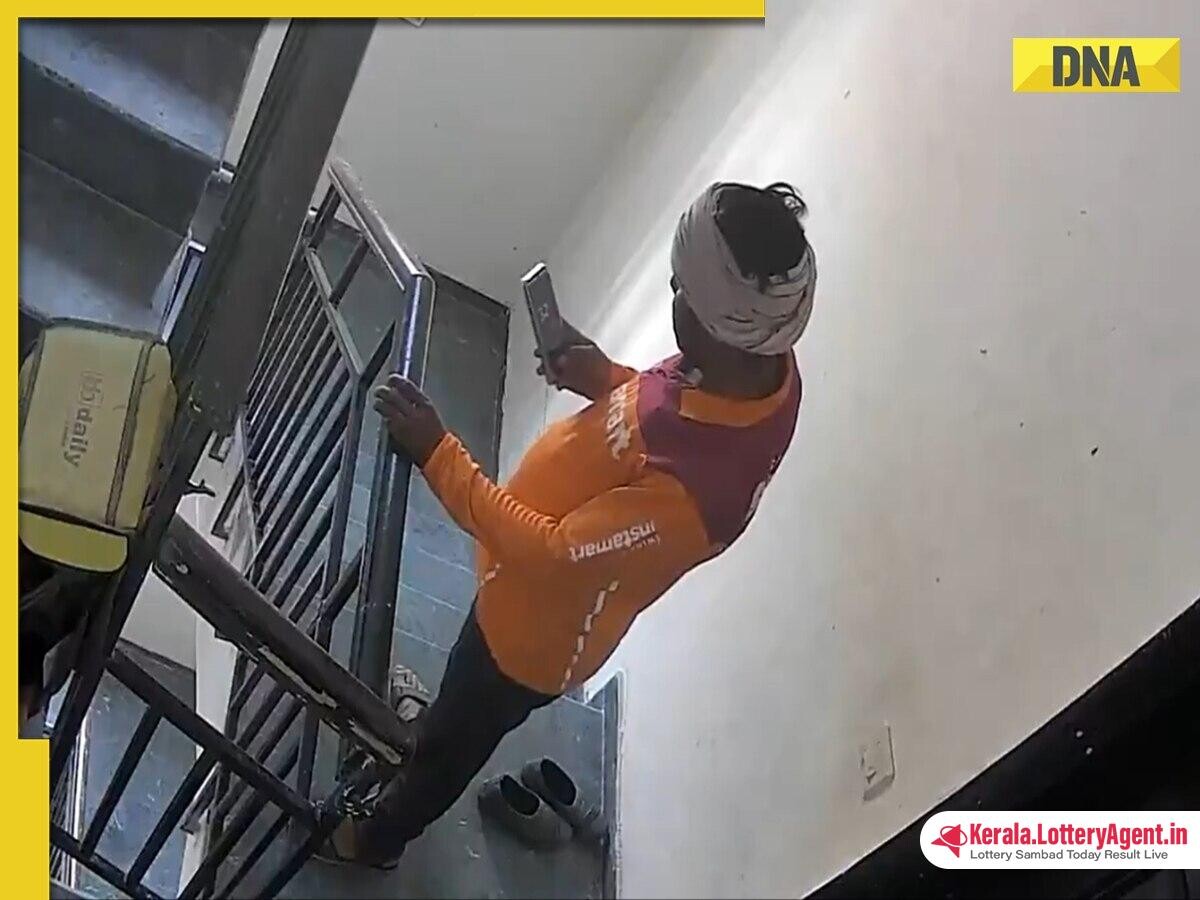
The often mundane security camera footage from residential complexes rarely captures the interest of the public, but a recent event in Gurugram has propelled a CCTV clip to viral status. In this footage, a Swiggy Instamart delivery partner finds himself at the center of controversy when he is filmed allegedly stealing a pair of shoes. This incident, occurring on April 9, has solicited a whirlwind of reactions from netizens after the video was disseminated across several social media platforms.
A normal day took an unexpected turn when a resident’s CCTV captured more than just daily comings and goings. The video begins uneventfully, with the delivery partner arriving to drop off an order. What follows, however, has ignited a barrage of criticism towards Swiggy’s handling of the situation. As seen in the video, the delivery person surveys the area before casually wiping his face, bending down, and taking a pair of black Nike shoes placed outside a flat. An offense that—for the owner of the footwear—carried not just the loss of an expensive item but also a breach of trust in a service many have come to rely on.
The clip was soon shared on social media with the caption denoting Swiggy’s “drop and PICK up service,” and an outcry over Swiggy’s refusal to provide contact details of the individual in question. The tweet showcasing the incident garnered significant attention, becoming a platform for discussion, outrage, and even humor.
A fraction of the online community blasted Swiggy, suggesting that the theft reflected a lack of vetting and control over their delivery partners. Others took to jest, crafting quips about the unique ‘service’ added to Swiggy’s portfolio and the unsought ‘pickup’ featured in the delivery run. Yet, within the manifold responses, emerged a sentiment of understanding for the accused delivery partner. It was suggested that perhaps Swiggy should look inward and offer more support to their employees to prevent such incidents.
Amongst the humorous takes were tweets that underscored the value of the stolen items. One user insisted that Swiggy should reimburse the owner for the lost Nike shoes, bringing to light the cost associated with the theft. The comical banter further included jabs about the CCTV’s impressive clarity and a tongue-in-cheek commendation for the captured color quality of the pilfered sneakers.
The episode has inevitably led to a wave of concern among customers over the security of their belongings. Some demand transparency and assertive action from Swiggy in regards to the theft. Yet, others harbor skepticism, sarcastically suggesting that the company’s reparation might just amount to a trivial voucher.
This incident, juxtaposed with many shades of social media reaction, highlights the complexity of managing customer relationships in the digital age. It raises questions about the responsibilities of tech-based delivery platforms and the trust we place in those who bring conveniences into our lives. As the post continues to make rounds online, it brings into sharp relief the varied facets of internet culture—from the seriousness of customer service and accountability to the relentless meme machinery that can turn any slip-up into viral content.
The stolen shoe saga reverberates beyond the screen and into the policies and practices of Swiggy’s operations. As the story unfolds, the affected parties and the watching public await a resolution that rights a wrong and restores the shaken confidence in a service that has become an integral part of urban living.












